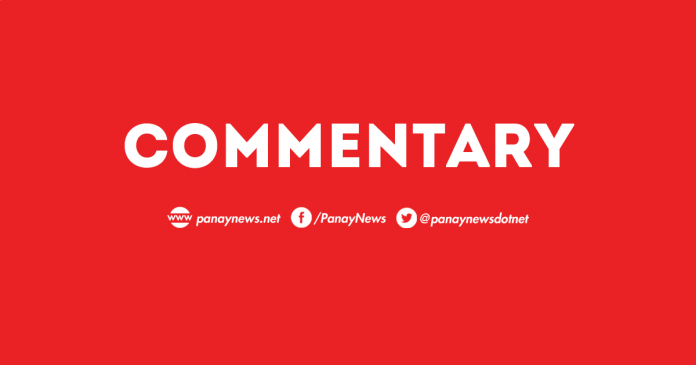
BY THE CENTER FOR WOMEN’S RESOURCES
As we celebrate World Health Day (April 7), it is a must to remember that such an event is gendered in as much as it is medically-related.
Now that the Philippines has been beaten to a pulp by an incompetent pandemic response, women’s health and security are greatly compromised. Many Filipinos are barely managing to make ends meet as the Duterte government continues its militarist response to the pandemic.
What’s worse is that the pandemic aggressively revealed the long-standing issues that the country has regarding our poor healthcare system – a system which is essentially abusive to people yet, favorable to the ruling class.
Economic insecurity is one of the many problems that Filipino women face today as reflected in last year’s high female unemployment rate which increased from 5% in April 2019 to 15.6% in April 2020 (CWR, 2021).
Following this context, coping well during the pandemic becomes too burdensome as they do not have enough means for subsistence. More than this, their poor condition is compounded by the neoliberal foreground of our healthcare system that thrives on privatization.
In Metro Manila alone, it has been reported that seven out of 10 hospitals are privately owned (CWR, 2021) thus, making it hard for poor families to access affordable healthcare. The country’s budget on health is also largely allocated to Philhealth (P71.4 billion or 34% of the overall DOH budget) compared to essential direct public health services (CWR, 2021).
Women, especially mothers have been socially assigned as health managers in the family and amid the pandemic, multiple burdens are forced on their backs because of factors that make it hard to sufficiently provide for their households.
Aspects of economic importance like that of the surging price of basic commodities on top of other expenses such as utility bills and school tuition fees among others, make it hard for women to juggle different responsibilities at once.
In the beginning of 2021, the country has experienced skyrocketing prices of pork, one of the most basic food items, at almost P500.00/kilo (Rivas, 2021). Affecting these high prices are the continuous liberalization and importation projects of the government which seek to increase supply but do not benefit the ordinary Filipino in any way.
Given the meager amount of minimum wage in the country, how can mothers assure that their families are constantly healthy amid the pandemic if they cannot even afford the most basic sources of sustenance?
Filipino women’s multiple burdens are further aggravated with the incompetence of the government when it comes to proper health crisis response. Instead of the proper implementation of free mass testing, efficient contact tracing and COVID-19 information drives, the Duterte administration implemented a militarist lockdown which only preyed upon the poor.
Their vulnerability towards COVID-19 is even worsened by the glaring reality that households shoulder most of the health expenses (47.9%) in the country more than that of the government’s expenditure (41.3%) (CWR, 2021).
Due to this, many poor Filipinos are hesitant to be tested in the instant that they experience COVID-19 symptoms because they are more concerned about the money which could have been used for basic needs. Regardless, the government has not done anything to make such services accessible and attainable for the masses.
Now that we are experiencing a far worse increase in COVID-19 cases, hospitalization burdens have also grown rampant. In NCR alone, DOH has declared that 50 hospitals have already used up 85% of the bed capacity as of March 30 (CNN, 2021). Some are even forced to look for available hospitals outside the metropolis as they are constantly being rejected due to the surging number of patients.
This is part and parcel of the negligence of the state to mitigate the health crisis and provide social services to those who do not have the choice but cramp themselves in underfunded public hospitals. This, again, puts women and their families at higher risks of contracting the diseases, spreading the virus, and suffering from unimaginable financial doom.
The lack of an appropriate vaccination program also hinders families and women from finally freeing themselves from this health crisis. However, the administration does not seem to have a plan as they only apportioned P2.5 billion for the mass vaccination program constituted in the 2021 national budget (CWR, 2021). This is obviously not enough to vaccinate 60% of the country’s population, the target number to protect the citizens from COVID-19. The shortness of rigor on the side of the government terrorizes many families and women who are trying to fit their small earnings just to survive.
Instead, the government is more hell-bent in opening the economy from which only businesses will thrive. Until now, there are no systematic and evidence-based programs on mass testing and contact tracing that have the potential to alleviate the astounding effects of the pandemic.
In spite of the many challenges women face today amidst the onslaught of the pandemic, women remain firm in asserting their rights for economic relief and a mass-based healthcare system.
As we celebrate World Health Day, we continue to call for a more inclusive and scientific COVID response through systematic mass testing, contact tracing, and massive information campaigns about the vaccine.
We continue to demand accountability from the government that for so long, mistreated its citizens through its anti-people, anti-poor practices, consequently violating women and people’s right to health.
With our fists up high, we stand with all women for a safer and healthier Filipino society./PN

